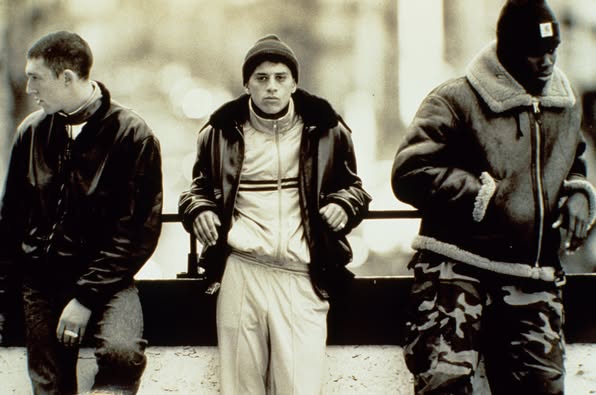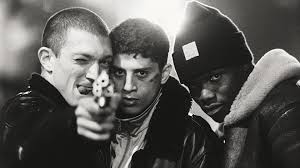La haine (1995)

La Haine is a powerful and thought-provoking film that stands out as a significant work in the genre of social drama. Released in 1995, this French film, directed by Mathieu Kassovitz, offers a raw and unfiltered look at urban youth and the social tensions that arise in marginalized communities. It has since become a classic, resonating with audiences for its timeless themes and striking visual style.
The film follows three young men—Vinz, Saïd, and Hubert—who navigate life in the aftermath of a violent riot in the suburbs of Paris. As they grapple with their feelings of anger, frustration, and hopelessness, the narrative unfolds over a 24-hour period, capturing the escalating tension and emotional turmoil within their lives. The storyline is not only a reflection of their personal struggles but also serves as a critique of the systemic issues faced by immigrant communities in France.

What sets La Haine apart is its stark black-and-white cinematography, which enhances the film’s gritty realism and underscores the bleakness of the characters’ environment. This choice of color palette, coupled with Kassovitz’s direction, creates a sense of urgency and immediacy, drawing viewers into the protagonists’ world. Each frame is meticulously composed, contributing to the film’s overall impact and leaving a lasting impression on the audience.

The film is steeped in social commentary, tackling themes of violence, alienation, and the cycle of hatred that perpetuates societal discord. Through the experiences of Vinz, Saïd, and Hubert, La Haine examines the consequences of systemic oppression and the desperate search for identity and belonging. The dialogue is sharp and poignant, reflecting the characters’ frustrations and aspirations, while also highlighting the complexities of their relationships.

La Haine is not merely a tale of street life; it serves as a mirror to society, prompting viewers to confront uncomfortable truths about inequality and injustice. The film’s impact has endured over the years, inspiring discussions about race, class, and the struggles of youth in urban settings. It remains relevant today, resonating with new generations who continue to face similar challenges.
In summary, La Haine is a landmark film that combines compelling storytelling with striking visuals and profound social critique. Its exploration of anger, identity, and societal issues makes it a must-see for anyone interested in the complexities of human experience and the impact of socio-political realities.











